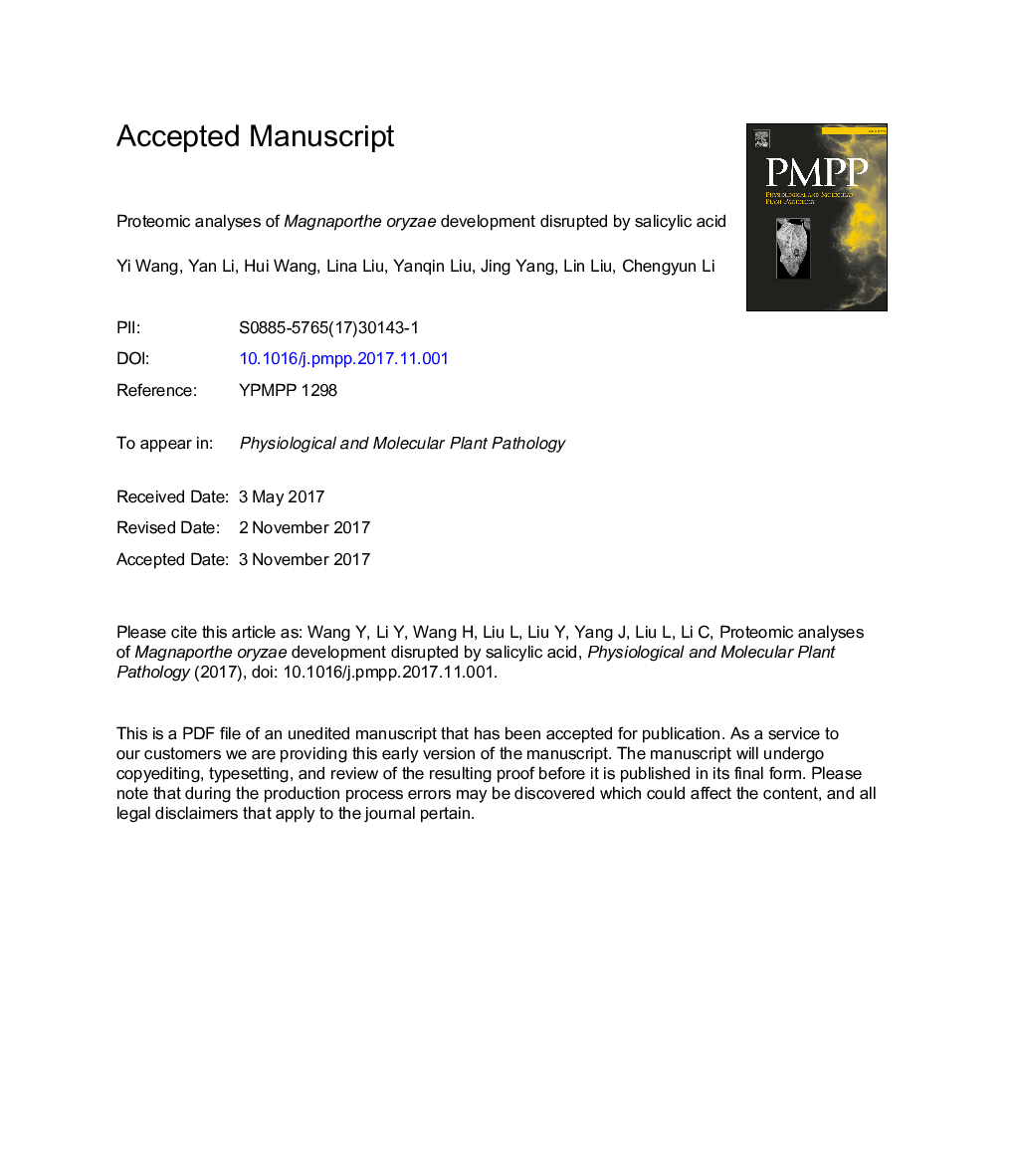| Article ID | Journal | Published Year | Pages | File Type |
|---|---|---|---|---|
| 8649213 | Physiological and Molecular Plant Pathology | 2018 | 35 Pages |
Abstract
Salicylic acid (SA) known as a plant hormone plays an important role in induced systemic resistance and hypersensitive cells, effectively in responses against abiotic stresses such as drought, cold, heavy metal toxicity, and osmotic stress as well. Magnaporthe oryzae is the causal agent of rice blast disease that causes losses of rice yield provided for 60 million people. However, little is known about fungal response to exogenous SA. We observed that 100 μM of SA exhibited higher inhibitory effects on mycelium development, conidiation, conidial germination and appressorium formation in present study. To reveal the involved pathway underlying, comparative proteomes were performed. The results show that the proteins involving energy metabolism, fungal development, signal transition, stress and pathogenicity related proteins were reprogrammed by SA with concentrations of 100 μM. Our results indicate that SA not only improves rice growth, but it also disrupts development of blast fungus.
Related Topics
Life Sciences
Agricultural and Biological Sciences
Plant Science
Authors
Yi Wang, Yan Li, Hui Wang, Lina Liu, Yanqin Liu, Jing Yang, Lin Liu, Chengyun Li,
